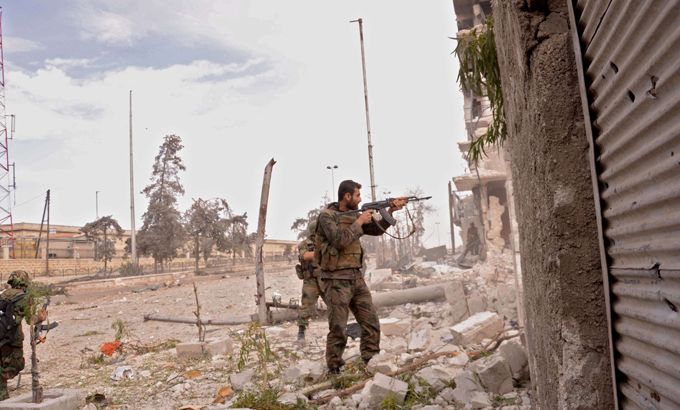Syria rejects UN calls for unilateral truce
Regime says opposition fighters must stop the violence first, as it deploys soldiers in rebel-held town in Idlib.

Syria has rejected a call by the UN chief for it to declare a unilateral ceasefire, insisting that rebels fighting the government must stop the violence first.
Jihad Makdissi, Syrian foreign ministry spokesperson, said on Wednesday that twice during the abortive UN military observer mission deployed to Syria between April and the end of August, the government had implemented a ceasefire.
But he said the rebels “used the opportunity to expand their armed deployment and increase casualties due to terrorist activities”.
Makdissi’s comments came as the government reportedly was sending tanks from Mastumah, in the northern Idlib province, to the town of Maarat al-Numan, where rebels and government forces are battling for control of the town.
Battle for strategic town
Soldiers were also said to have been deployed along the highway to Maarat al-Numan to secure the passage of heavy armour to the strategic town on the Damascus-Aleppo highway.
Opposition fighters were battling to halt their advance, using rocket launchers and improvised explosive devices, a rebel source told the AFP news agency, adding three tanks were damaged.
The intensifying battle for Maarat al-Numan was “very important”, said the rebels who claimed control of the town on Tuesday after 48 hours of fierce fighting and heavy shelling.
|
|
Rebels also intercepted troops on the outskirts of Khan Sheikhun, south of Maarat al-Numan, where intense clashes erupted even as warplanes bombed rebel zones, the Syrian Observatory for Human Rights (SOHR) said.
“If the rebels, who already have Maarat al-Numan and Saraqeb, take Khan Sheikhun, they will completely isolate regime troops in Aleppo because redeployments will not be able to arrive,” Rami Abdel Rahman of the UK-based opposition group said.
Ban Ki-moon, the UN secretary-general, urged the Syrian regime on Tuesday to declare an immediate truce to bring an end to the conflict that he said had left 20,000 dead over the last 19 months.
“It is unbearable for the [Syrian] people to continue like this. That is why I have conveyed to the Syrian government [a] strong message that they should immediately declare a unilateral ceasefire.”
Ban urged “the opposition forces to agree to this unilateral ceasefire when and if the Syrian government declares it” and he called on countries supplying arms to either side to stop in order to ease the suffering of the Syrian people.
‘US military in Jordan’
Separately, the US defence secretary said a team of US military planners is in Jordan to help the government grapple with Syrian refugees, bolster its military capabilities and prepare for any trouble with its chemical weapons stockpiles.
“We have been working with Jordan for a period of time now … on a number of the issues that have developed as a result of what’s happened in Syria,” Leon Panetta said in Brussels on Wednesday.
Panetta said those issues included monitoring chemical weapons sites “to determine how best to respond to any concerns in that area”.
A US official, speaking on condition of anonymity, said the small team of planners were not engaged in covert operations and have been housed at the King Abdullah II Special Operations Training Center, north of the capital of Amman, since the early summer.
Jordan’s army denied in a statement that the US has dispatched special forces to help the kingdom confront potential dangers posed by Syria’s alleged chemical weapons.
The US military advisors are in Jordan for a long-term joint military training programmes that “have no relation” to the Syrian crisis, the statement said.
“The Jordan Armed Forces can confront any future challenges” without outside assistance, it added.
While the US has not intervened militarily in Syria, President Barack Obama has warned Syrian President Bashar
al-Assad that any attempt to deploy or use chemical or biological weapons would cross a “red line” that could provoke
US action.